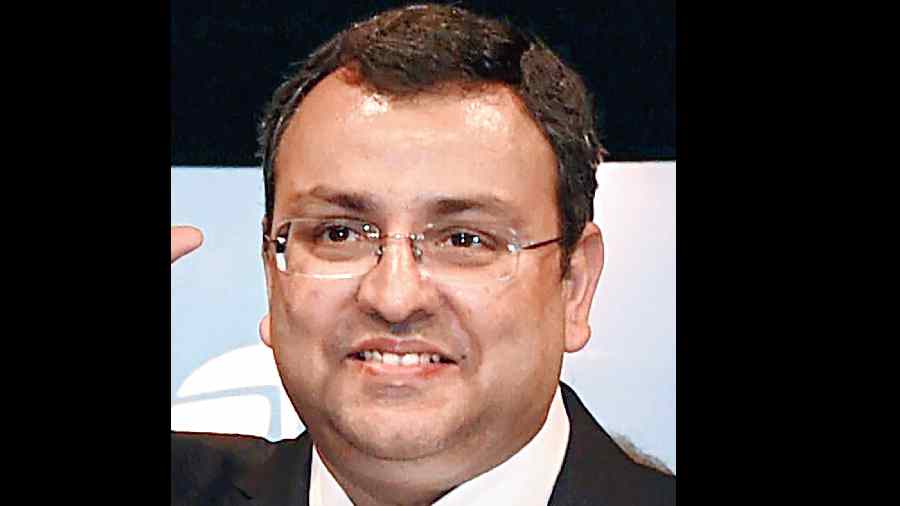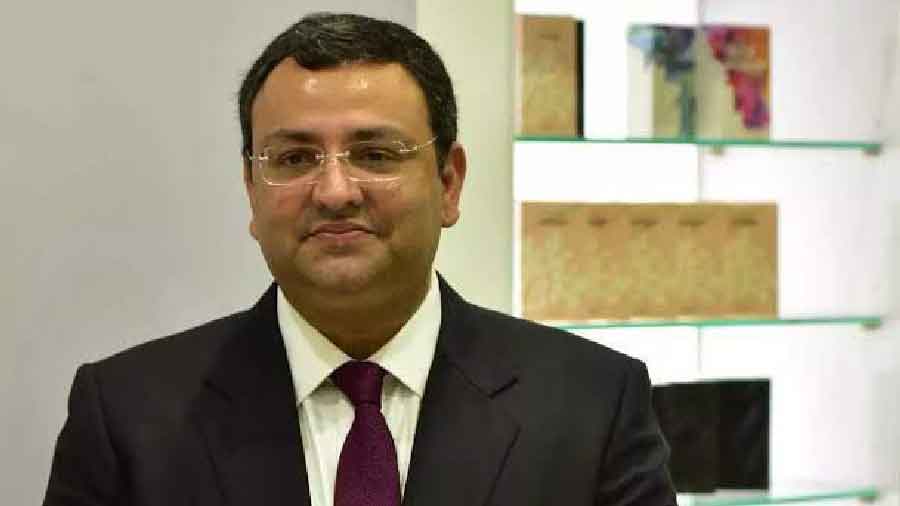The tragic death of Cyrus Mistry, former chairman of the Tata Group, in a car crash on Sunday has turned into a wake-up call for passengers in the back seat who almost never strap on their seat belts.
“I resolve to always wear my seat belt even when in the rear seat of the car. And I urge all of you to take that pledge too. We all owe it to our families,” Anand Mahindra, chairman of the Mahindra group, said in a tweet on Monday as the full horror of the car crash near Palghar in Maharashtra started to sink in.
Police officers said they had been going over the clips sourced from the CCTV cameras that dot the Ahmedabad-Mumbai highway in the lead-up to the accident in which Cyrus and Jahangir Pandole, a former KPMG director, died.
Both were in the back seat of the Mercedes SUV; neither was wearing a seat belt. The car had apparently been speeding. One officer said the car had travelled 20km in 9 minutes before the accident — which effectively means it was travelling at more than 130km an hour.
Front seat belts became mandatory for all cars made in India after March 1994. The rule was extended to the rear seats in 2002.
According to Rule 138(3) of the Central Motor Vehicle Rules (CMVR), persons “seated in the front seat or the persons occupying front-facing rear seats” must wear seat belts while the vehicle is in motion. Failure to do so can result in a fine of Rs 1,000. Most police personnel do not bother to slap these penalties on back-seat passengers. As a result, passengers at the back of vehicles rarely use them. Worse: those punctilious about seat belt use in the back seat have to often contend with snickers from fellow passengers for their perceived over-fastidiousness about complying with rules.
The Mercedes GLC SUV that Cyrus was travelling in had two front passenger airbags, one knee airbag for the driver to prevent damage from the steering column, two side airbags for front passengers and two curtain airbags for rear passengers. The curtain airbags in the rear seats had deployed at the time of collision. In June, road transport and highways minister Nitin Gadkari had announced that the government would make it mandatory for all carmakers to provide a minimum of six airbags in vehicles that carry up to eight passengers. The post-mortems on the bodies of Cyrus and Jahangir were completed at the state-run J.J. Hospital early on Monday. Reports said the autopsies had revealed polytrauma or major injuries to vital organs as the cause of death. Cyrus’s last rites will take place at 11am on Tuesday in the Worli Crematorium in south Mumbai. Darius Pandole, 60, and his wife Anahita, 55, who were in the front seats and had their seat belts on, were injured in the crash.
They have been shifted to the Sir H.N. Reliance Foundation and Research Centre Hospital in Mumbai. They had been taken to a super-specialty hospital in Vapi, Gujarat, soon after the crash. At the start of a media conference by Tata Motors at the Jio Convention Centre in Mumbai, officials mourned Cyrus’s death. Executive director Girish Wagh and other company officials observed a minute’s silence in his memory. An unprecedented safety announcement was also made at the start of the meeting. The participants were informed about all the exit routes from the venue and an emergency response team was on standby to assist in case of any trouble.


